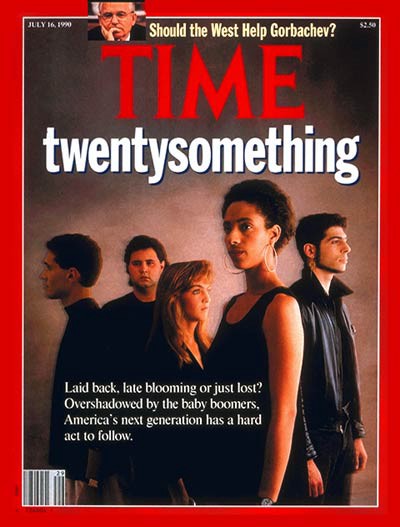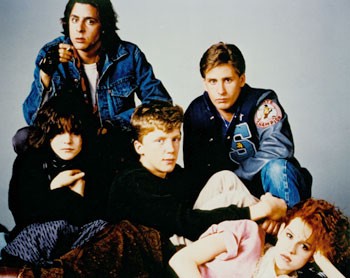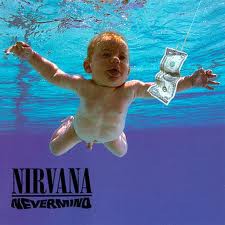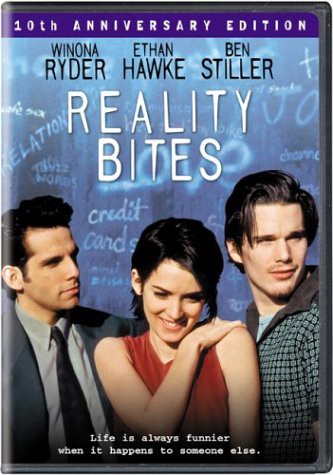Meet the Permaslacks: Older Now, But Still Wearing The Same Clothes

Generational torsion is not a new thing. Each generation has one that comes before and then comes after. The as-they-are-known Greatest Generation butted heads with the Baby Boomers that grew their hair and attended, to a man, Woodstock. Then the Gen-Xers befuddled their folks by missing expectations, be they a gastroenterology practice, or dropping out of college, as applicable. Befuddling is what we do in that shear between the decades, as if it were a function of nature and not human nature.
And now, as Gen-X grows old enough to inherit the management of the forces that run the world, the Millennials (or Gen-Y, or Echo Boomers), as they are called, the immediately subsequent generation, are jumping the line in increments — see The Social Network, if you can bear to. The pie is not always inherited in an orderly fashion, and as mores change, matters of style become as important as matters of substance.
So basically it’s on.
I personally don’t have a dog in that fight. I’m firmly of a Gen-X age, but my ambitions do not lie in the field of owning and/or running things. And certainly, some of the traits laid at the feet of the Millennials befuddle me. But I’m not here to throw rocks. I’m here to look at the rock-throwers, or at least to further define the playing field.
Generations have an enormous number of actual constituents. For example, there are about fifty million American Gen-Xers. (And over seventy million Millennials, for what that’s worth.) So to speak of them as a “generation” is not entirely fair. For every member of the Greatest Generation that was actually great, presumably there are at least one if not two or three who were not actually so great. And in the same sense, a goodly number of Boomers had crew cuts or beehives and were not the best hippies in the world. It’s the same with Gen-X. In Gen-X, there are plenty who never went to a liberal arts school, plenty who never wore plaid ironically or had long hair not so ironically, and plenty who have never heard of DFW. In all cases, the members of the generation who do not have the iconic behavior patterns and style sense are kind of excluded when generational matters are spoken of. It’s the noisy signifiers that get all the ink. And the noisy signifiers of Gen-X are what we call “Permaslacks.”
This would not be the first nifty phrase coined for this demographic segment, and it certainly won’t be the last. Coin-phrasing is what we do. “Rejuveniles,” maybe you’ve heard of, or maybe “Grups.” Both similar, but both different from this. Rejuveniles and Grups are those of a certain age, Xers no doubt, who were (at the time) adopting the trappings of juveniles as a style. There’s something to that, but let’s look at only these Permaslacks for now.

The derivation of Permaslacks is pretty obvious, and I guess we have Richard Linklater to thank for it, though Mr. Linklater has us to thank for himself, too, and mention surely must be made of
Superchunk. That would be just two of the many patron saints of the Permaslacks, who have absorbed culture like dry sponges over the spans of their lives, starting with the lunch boxes they took to school and the TV shows their parents watched and going forward from there. In fact, nostalgia is a constant backdrop for the PS, a nostalgia that isn’t even anything that grew over time: it was always there, and it was never personal. There was always a sense that there was a time before the then-current one. Loss? That there was some moment that would have been a more natural fit? At any rate, a sense of displacement, an acute awareness of being displaced, out of time, of being too late. Of being equipped to fully thrive in a paradigm that was the immediately previous paradigm. And this rolled through the years — while focusing on the immediately previous paradigm, another one thrives that will only be noticed once it’s over.
Which brings us to the act of joining. The PS does not do this, whether it’s a generational moment or a book club. It’s a source of consternation, those odd frozen moments when joining — that is, fully participating in an affinity group — is an option. There’s a feint, a half-hearted attempt, and then a purposeful retreat. It’s the converse of the Groucho-ism, about not wanting to join anything that would have him. More like, only wanting to have joined at some point previous. The PS is well-schooled in staircase wit.
The PS is easy to spot out in the world, as they more or less dress like kids. They keep grown-up clothes around, but they don’t spend money on them and Christmas only comes around once a year. They do clean up nice, as anyone does, but given the chance they will dress like it’s fifteen years ago (and it’s likely that the kid-clothes are actually fifteen years old, and were at some point au courant). Comfort is the key, both physically and spiritually, as is a somewhat superannuated sense of rebellion.

This is because lodged firmly in the center of the imagined power structure that the PS is reacting to, whether they know it or not, is the Man. Growing up with a pronounced strain of anti-authoritarianism, from punk rock (and post-punk rock) to movies (here’s only three of hundreds: Smokey and the Bandit, Porky’s, Platoon), the authority, the Man, was a laughable figure to be subverted, mocked or end-runned. The nirvana for the PS as a teen was Gettin’ Away With It. It was encoded in their neural pathways. And a whole bunch of the PS are parents now, and some actually the Man, creating an internal tension, a conflicted nature, a tentativeness. The PS still intuitively does not trust the Man even when the Man is staring back at the PS from the mirror — and even when the concept of the Man is itself hopelessly outmoded (which has never scared a PS away from anything).
Oddly, this anti-authoritarianism is partly inspired by a life of geekdom. The PS assimilated a good deal of low culture as high culture. Comic books were no longer funny books relegated to the drug store rack, and sci-fi films became big budget blockbusters, and yet there was still a sense of society’s nose turned up. And it was the PS that led the charge for legitimacy, as these art forms, previously aimed at children, were carried along into college and beyond. The enthusiasms of the PS die hard, and while snobs in their own way, they find what they like and are persistent in lobbying for it. And it is not ironic or purely nostalgic, this affection for Jack Kirby or Philip K. Dick, but rather an insistence on these objects’ inherent quality. Kitsch is not an affectation, it’s just that the gatekeepers hadn’t realized the good in the kitsch hidden behind the shabby.
Music for the PS is almost too big to address as a separate issue. In fact, the great Where Were You When moment of the PS?

The death of Kurt Cobain, of course, and not because everyone was personally a fan (they sold out, you see), but because everyone was in physical proximity to at least one person who collapsed into heaving sobs. Music for the PS is not just a hobby, even for those who did or do not have bands, but a universal soundtrack of everything. You’ve heard the music. It’s still being played, and largely any band that meant something to any portion of the PS has reunited or never broke up (with the exceptions being the bands whose members have died, and the Replacements). This music is not of course exclusive to the PS, it’s everybody’s. It’s everywhere. And it’s where the PS derive their ethos of Do-It-Yourself from, after decades of watching their favorite bands Book Their Own Expletive Lives.
Ambition: that’s a good one. A defining characteristic, for good or bad. The PS maintains a very complex relationship to ambition. To all appearances, the PS exists in an absolute vacuum of ambition, replaced by a DIY complacency. Success would be fantastic, but the trade-offs for success are steep, and as each successive trade-off is refused, success is whittled down into an unobtainable thing that can only happen to them, unbidden. And to appear at all like the PS would welcome this success, to strive? That would be unseemly. Unseemly and something that will scare this unbidden success away. This mechanism is based on nothing but years of “intuition,” which is actually just a wet ball of entitlement and insecurity. There is no evidence whatsoever, objective or anecdotal, that any of these superstitions will have any affect over the success of the PS, but still: that’s how it works, and the PS has the haircut to show for it.

Not that the PS is not well-off. Most likely, they are. Either they have accidentally fallen into a career that is remunerative, or they have scrambled on the fringes of post-college careers so long that they are now the manager. They make the money, they pay their bills and their taxes. They do not have a second home, a boat, an annual vacation in the south of France. But they do all right, and they do so with a resigned loathing, because whatever they are doing for money, it is not what they want to be doing for money. They have unfinished novels in the desk, the band that still gets together when the other members can afford a babysitter. Whatever it is that puts food on the table, it is a “day job,” which, no, they have not quit yet, just as they have not quit calling it a day job, even though the window in which the day job gets to still be thought of as a day job is not open very much, and not getting any opener.
But the PS is not necessarily a lifer, as society is filled with former Permaslacks who have peeled off into legitimacy. And for the lapsed, quitting the slack is not a concession, it is a survival instinct. The post-punk anti-success sensibility propelled them quite nicely for a time, but the reckoning is abrupt and rude. And yet strangely comfortable.
There is an unkind word to describe the PS: misfit. It’s not a word that is used to describe the PS by third-party observers, but it’s the secret scarlet letter that is slowly choking the PS to death. Which is ironic, and not in the Alanis Morrisette sense, because the PS has proudly carried the misfit mantle, has actively propagated the impression of misfitism, for so long that it is no longer an affectation. It’s finely honed instinct. Look at the indications: the fashion sense frozen in time, the nostalgia-lock, the day job. This façade is not constructed painlessly or without sacrifice.
There are good qualities to the PS — sadly, the PS is too stuck in a feedback loop to have any awareness of these qualities. They’re vaguely aware, but swamped by sheepish self-doubt. And persistence. And self-doubt.
And that’s the fundamental difference that separates the PS from the Rejuveniles/Grups. The latter are formulated as valedictories and predicated on ample discretionary income, on success. For every one Rejuvenile/Grup, there will be two or more Permaslacks who raise their eyebrows at the vintage kicks and the $500 pre-distressed jeans as yet another commodification. The PS would never, even in rare periods of profligacy, pay a premium for the recreation of authenticity, because the act would be a contradiction. So respectfully I submit that this premise, while tangentially related, is not a reiteration of the premises that came before. In fact maybe those guys, the Rejuveniles and the Grups, were subgroups exclusive of what we’re calling the PS.
This is more of a confession than a scientific examination, obviously. Actually, this essay is more Exhibit A than anything else, because I’m certainly a member of this small group. These characteristics are generalities, and pretty specific to my socioeconomic circumstance and gender, and there’s hundreds of unifiers that I’ve left out, and hundreds of ways that the above qualities are not universal. But perhaps the most acute trait of the PS, of me, is the dogged insistence in one’s own uniqueness, that one’s story is an anomaly, a precious snowflake of a blessing/curse. And one of the hardest lessons to learn, above and beyond the array of consequence-of-one’s-actions lessons that fill a lifetime, is that, no, you are not unique. In fact, you are a demographic. I am not unique. I am a demographic. No matter how many years you spent convinced that you were trail-blazing, you were marching in lockstep with untold others. An army of non-conformists, all trying to be different in exactly the same way.
Which is why I find the Gen X (or the PS) v. Millennials conflict so quizzical. Maybe it’s just posturing, displaying one’s plumage at the watering hole, taking measure, but from the perspective of the PS, it might be fun to gripe and poke fun just for the sake of mischief, but totally not worth it to start a blood feud. With anyone. The PS is far too introspective for that. Unless, of course, the feud is with the Man, in which case all bets are off and the gloves are dropped and the Man better prepare to be gummed to death by out-of-tune guitars. Which may indicate that the prospects of the Millennials going forward is pretty damn good.
